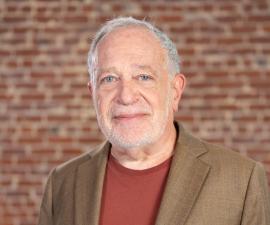

Research Bio
Robert B. Reich has served in three national administrations, most recently as secretary of labor under President Bill Clinton. He also served on President-Elect Obama’s transition advisory board. He has written eighteen books, including The Work of Nations, which has been translated into 22 languages; the best-sellers The Future of Success, Locked in the Cabinet, Supercapitalism, Aftershock, Beyond Outrage, The Common Good, Saving Capitalism, and The System.
Professor Reich is co-founding editor of The American Prospect magazine, co-founder of the Economic Policy Institute, and co-founder of Inequality Media. In 2003, Reich was awarded the prestigious Vaclav Havel Vision Foundation Prize, by the former Czech president, for his pioneering work in economic and social thought. In 2008, Time Magazine named him one of the ten most successful cabinet secretaries of the century. He received his B.A. from Dartmouth College, his M.A. from Oxford University where he was a Rhodes Scholar, and his J.D. from Yale Law School.
Books:
The System: Who Rigged It, How We Fix It (Knopf, 2020)
The Common Good (Knopf, 2018),
Economics In Wonderland (Fantagraphics Books, 2017),
Saving Capitalism: For the Many, Not the Few (Knopf, 2015),
Beyond Outrage (Knopf, 2012),
Aftershock: The Next Economy and America's Future (Knopf, 2010),
Supercapitalism (Knopf, 2007),
Reason (Knopf, 2004),
I'll Be Short (Beacon, 2002),
The Future of Success (Knopf, 2000),
Locked in the Cabinet (Knopf, 1997),
The Work of Nations (Knopf, 1991),
The Power of Public Ideas (ed), (Harvard U. Press, 1988),
Tales of a New America (Times, 1987),
New Deals (co-author, Times, 1984),
The Next American Frontier (Times, 1983),
Minding America's Business (co-author, Harcourt Brace, 1981).
Research Expertise and Interest
economic inequality, industrial policy, macroeconomic policy, public management and leadership
In the News
Putin’s War and Its Economic and Geopolitical Realities
Public education ‘dying’ in the U.S., Reich warns
Study sees positive impact of raising New York’s minimum wage to $15 an hour
A new UC Berkeley report finds that raising the minimum wage in New York have large positive effects on living standards and very small effects on employment.
Featured in the Media
The House Education and Labor Subcommittee on Health, Employment, Labor and Pensions held a virtual hearing examining ways in which to achieve affordable and universal health care. Witnesses include former Labor Secretary Robert Reich (Clinton admin., 1993-97). A variety of topics were discussed, including the high cost of health care and prescription drug prices, expanding Medicare, employer-based health care coverage, hosptial consolidations, and the impact of the COVID-19 pandemic on the current health care system.
The Senate Budget Committee held a hearing on income inequality and the decline of union influence. Chair Bernie Sanders (I-VT) spoke about the growing wage gap between the nation’s wealthiest and the poor and middle class. He also announced new legislation to tax CEO compensation. Former Clinton administration Labor Secretary Robert Reich and other economic policy experts testified about addressing income inequality.



